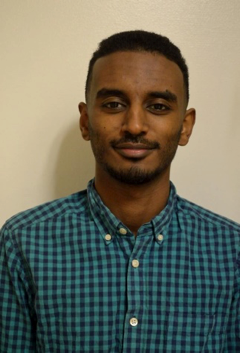
Tesfaye Ayele
Tesfaye Woubshet Ayeles 50%-seminarium
Välkommen att ta del av Tesfaye Woubshet Ayeles 50%-seminarium – Pedagogy of National Liberation: The History and Representation of Education in Ngũgĩ wa Thiong’o and Tsitsi Dangarembga’s Early Novels – på plats i Stockholm eller via Zoom.
Seminariet hålls den 1 oktober klockan 14 - 16 i rum E890, Department of English, södra huset. Seminariet sänds också via Zoom: https://stockholmuniversity.zoom.us/j/67047003495
Meeting ID: 670 4700 349
Abstract
This manuscript presents a study of education as it features in Ngũgĩ wa Thiong’o’s early novels. I argue that Ngũgĩ’s Weep Not, Child and A Grain of Wheat portray education during the colonial period in a dual manner, firstly as a means of colonial conditioning and subjugation, and secondly as a process of personal and collective emancipation. Although the former aspect has received much attention, the latter, which I call the pedagogy of national liberation, remains untheorized by literary critics and even goes unacknowledged by current literary scholarship. This lapse, I argue, is a result of the theoretical and methodological predisposition of postcolonial/decolonial literary scholarship since the 1980s, a combination of solely analyzing power/colonial discourses and viewing such discourses as hegemonic (in education) during the colonial period. This predisposition is accompanied by an insistent suspicion and criticism of narrative, the grand narratives of empire as well as emancipation. The result is an omission of the historicity and agency of the imperialized.
Although this school of postcolonial theory is usually traced back to Said, Said’s own hermeneutics militates against the postcolonial school of literary criticism he is supposed to have founded. Drawing inspiration from Said’s life and work, as well as from the lessons of critical pedagogy, I attempt to understand the pedagogy of national liberation in Ngũgĩ’s novels as a literary motif that is grounded in African history. By highlighting the historicity of Ngũgĩ’s portrayal of education/Christianization in Kenya, I argue that the pedagogy of national liberation was of paramount importance in anticolonial resistance and the reclamation of sovereignty. Through a careful analysis of Weep Not, Child and A Grain of Wheat, I argue that the pedagogy of national liberation upends the curricular, social relational, and institutional bases of colonialist education and proposes new ones in their stead.
